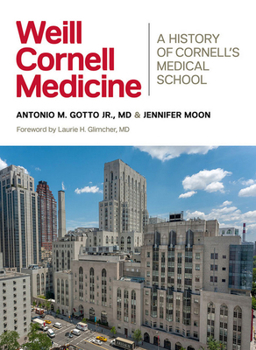Weill Cornell Medicine: A History of Cornell's Medical School
Weill Cornell Medicine is a story of continuity and transformation. Throughout its colorful history, Cornell's medical school has been a leader in education, patient care, and research--from its founding as Cornell University Medical College in 1898, to its renaming as Weill Cornell Medical College in 1998, and now in its current incarnation as Weill Cornell Medicine.In this insightful and nuanced book, dean emeritus Antonio M. Gotto Jr., MD, and Jennifer Moon situate the history of Cornell's medical school in the context of the development of modern medicine and health care. The book examines the triumphs, struggles, and controversies the medical college has undergone. It recounts events surrounding the medical school's beginnings as one of the first to accept female students, its pioneering efforts to provide health care to patients in the emerging middle class, wartime and the creation of overseas military hospitals, medical research ranging from the effects of alcohol during Prohibition to classified partnerships with the Central Intelligence Agency, and the impact of the Depression, 1960s counterculture, and the Vietnam War on the institution. The authors describe how the medical school built itself back up after nearing the brink of financial ruin in the late 1970s, with philanthropic support and a renewal of its longstanding commitments to biomedical innovation and discovery.Central to this story is the closely intertwined, and at times tumultuous, relationship between Weill Cornell and its hospital affiliate, now known as New York-Presbyterian. Today the medical school's reach extends from its home base in Manhattan to a branch campus in Qatar and to partnerships with institutions in Houston, Tanzania, and Haiti. As Weill Cornell Medicine relates, the medical college has never been better poised to improve health around the globe than it is now.













